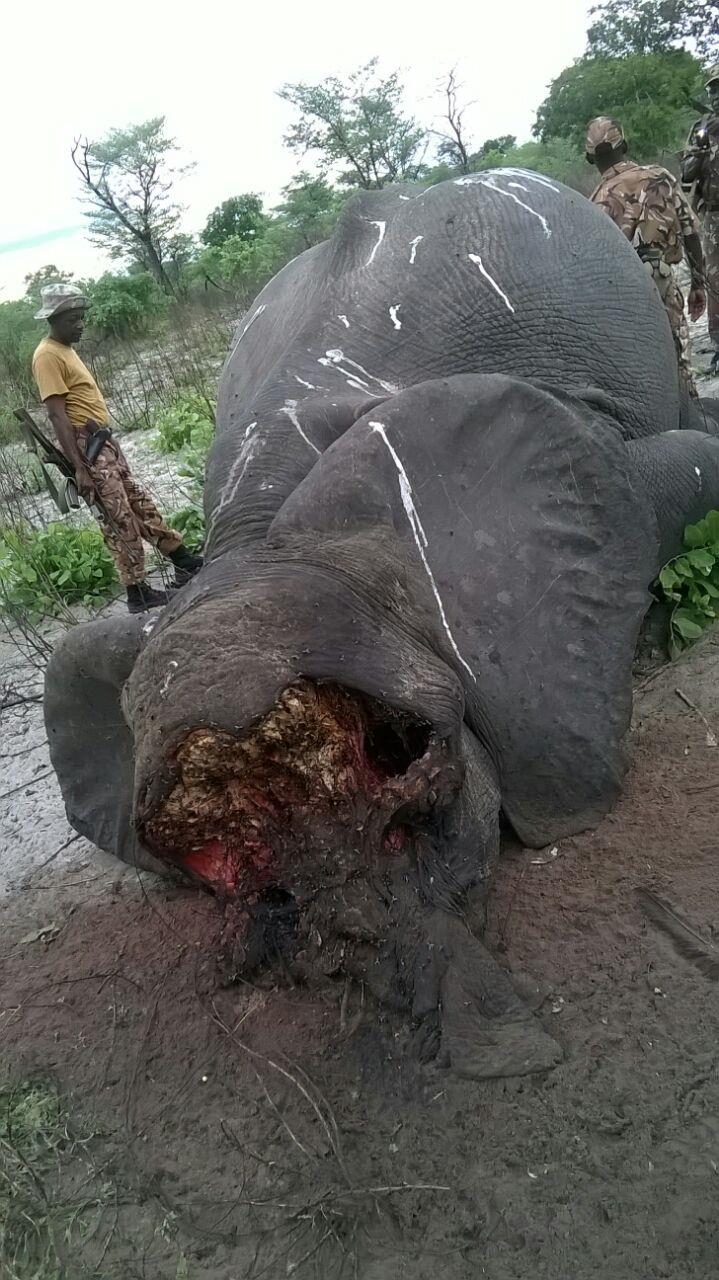Customs to tackle illegal wildlife trade
Namibia will be among several countries to take part in a workshop for custom officials who deal with wildlife crime.
The three-day workshop kicks off on Tuesday in Johannesburg and is hosted by the British High Commission in South Africa.
It will bring together customs officials from countries in Angola, Mozambique, Namibia, Tanzania, Zambia and Zimbabwe that deal with aspects of wildlife crime.
The workshop is a collaboration between the United Kingdom's Department of Environment, Food and Rural Affairs (DEFRA), the Chinese State Forestry Agency and the South African Revenue Service (SARS).
The participants from Namibia are the environment ministry's Ellias Amunime, chief warden in the Etosha National Park and Allison Kukuri at the risk management section in customs and excise in the finance ministry.
According to a statement by the British High Commission in Windhoek, tackling illegal wildlife trade is an important part of conservation, law enforcement, and socioeconomic development for all affected countries.
“With illicit activity crossing borders, regional cooperation and knowledge sharing is an essential component of a coherent response to this issue,” it says.
The discussions at the workshop will provide a platform for sharing best practice, innovation, and expertise, and aims to further develop the regional networks that are vital to addressing the trans-boundary issue of illegal wildlife trade.
Different components of the workshop will be led by experts from UK Border Force, who have experience with CITES and capacity building around the globe, and experts from Chinese State Forestry Agency, General Administration of Customs, and Northern Forestry University, who have experience in customs enforcement, species identification, and technical innovation in relation to illegal wildlife trade.
Valuable perspectives and best practices will also be shared by the South African Revenue Service. This workshop is a key step towards the 2018 London Illegal Wildlife Trade Conference which will also recognise illegal wildlife trade as a security issue, affecting people as well as animals. It will also focus on building coalitions, engaging the private sector, NGOs and academia; harnessing technology and innovation and closing markets for illegally traded wildlife products.
ELLANIE SMIT
The three-day workshop kicks off on Tuesday in Johannesburg and is hosted by the British High Commission in South Africa.
It will bring together customs officials from countries in Angola, Mozambique, Namibia, Tanzania, Zambia and Zimbabwe that deal with aspects of wildlife crime.
The workshop is a collaboration between the United Kingdom's Department of Environment, Food and Rural Affairs (DEFRA), the Chinese State Forestry Agency and the South African Revenue Service (SARS).
The participants from Namibia are the environment ministry's Ellias Amunime, chief warden in the Etosha National Park and Allison Kukuri at the risk management section in customs and excise in the finance ministry.
According to a statement by the British High Commission in Windhoek, tackling illegal wildlife trade is an important part of conservation, law enforcement, and socioeconomic development for all affected countries.
“With illicit activity crossing borders, regional cooperation and knowledge sharing is an essential component of a coherent response to this issue,” it says.
The discussions at the workshop will provide a platform for sharing best practice, innovation, and expertise, and aims to further develop the regional networks that are vital to addressing the trans-boundary issue of illegal wildlife trade.
Different components of the workshop will be led by experts from UK Border Force, who have experience with CITES and capacity building around the globe, and experts from Chinese State Forestry Agency, General Administration of Customs, and Northern Forestry University, who have experience in customs enforcement, species identification, and technical innovation in relation to illegal wildlife trade.
Valuable perspectives and best practices will also be shared by the South African Revenue Service. This workshop is a key step towards the 2018 London Illegal Wildlife Trade Conference which will also recognise illegal wildlife trade as a security issue, affecting people as well as animals. It will also focus on building coalitions, engaging the private sector, NGOs and academia; harnessing technology and innovation and closing markets for illegally traded wildlife products.
ELLANIE SMIT





Comments
Namibian Sun
No comments have been left on this article